Engagement Cards in Auckland Library
from formal balls held at Government House in Auckland in the late
1800s. These cards were found in the local records section of Auckland City Library.
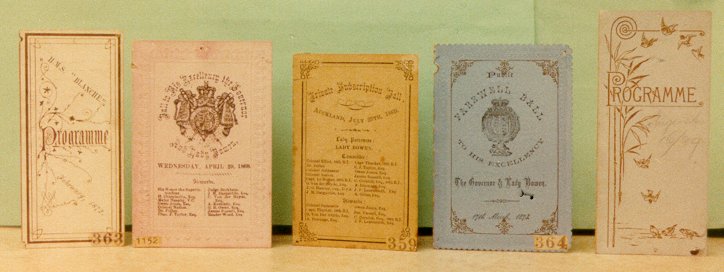


New Zealand Graphic - March 4, 1905
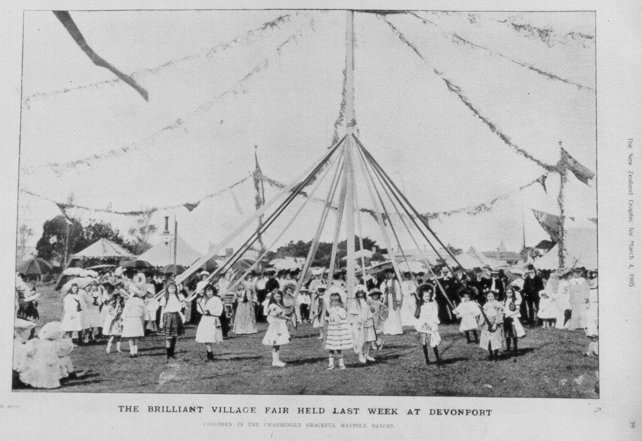
Maypole dancing in Devonport
New Zealand Graphic - March 25, 1905
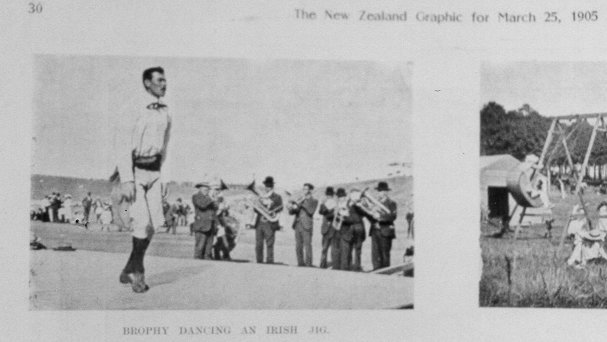
Brophy dancing an Irish Jig to a brass band

N.Z. Society for English Folk Dancing
There was a branch of the N.Z. Society for English Folk Dancing in
almost every N.Z. city and many towns during the late 1930s/1940s. Membership was mostly
women. They learnt Cecil Sharp-style English Country Dancing to 78 rpm records, and also
morris dancing and sword dancing. Documentary records of these activities, which included
an annual English Folk Dance Summer School, may be researched in the magazine English Folklore in Dance and
Song, which was published between 1938 and 1944 (13 issues). Many of the originals are
in Christchurch City Library, Christchurch University Library, and in the Alexander
Turnbull Library in Wellington. There are also some copies in the Ralph Vaughan Williams
Memorial Library at Cecil Sharp House in London.
Flamborough Sword Dance & Lock
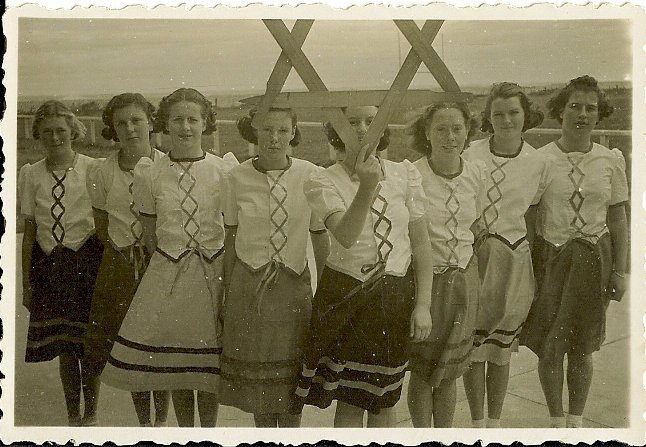
Flamborough Sword Dance
"Spreading the gospel at Granity District High School," - 1939
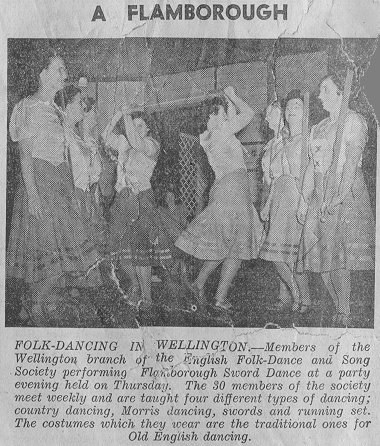
Flamborough Sword Dance in Wellington - 1950?

Morris Team, 1940
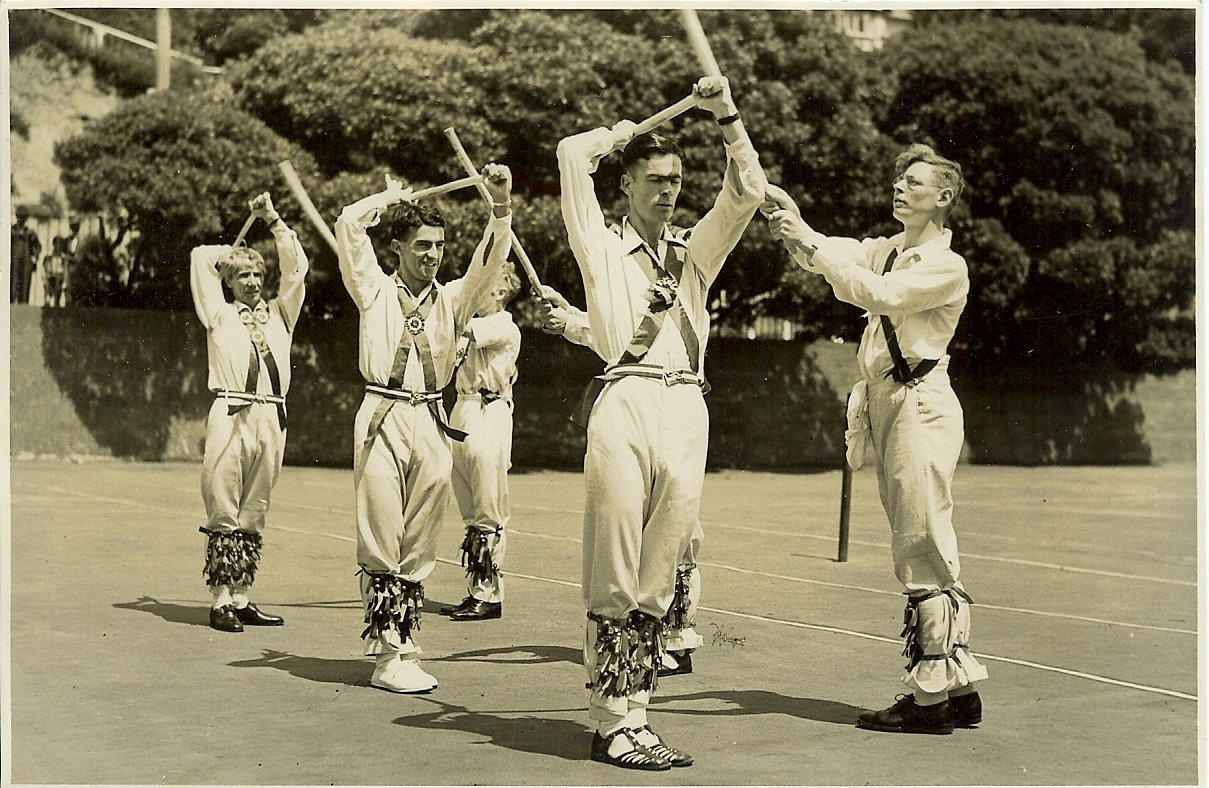
New Zealand Morris Men at Wellington Summer School - 1940
Courtney H. Archer (obsc.), W. H. Allen (obsc.), John Oliver
Francis A. Shurrock, Peter Roberts, Leo Bensemann
Note: Courtney H. Archer used to own and run the flour mill at Rangiora.
He had a b&w film of the team dancing. Attempts to locate this in the 1970s drew a
blank.
It was reportedly in too bad a condition to show and may have been thrown away.

Selenger's Round
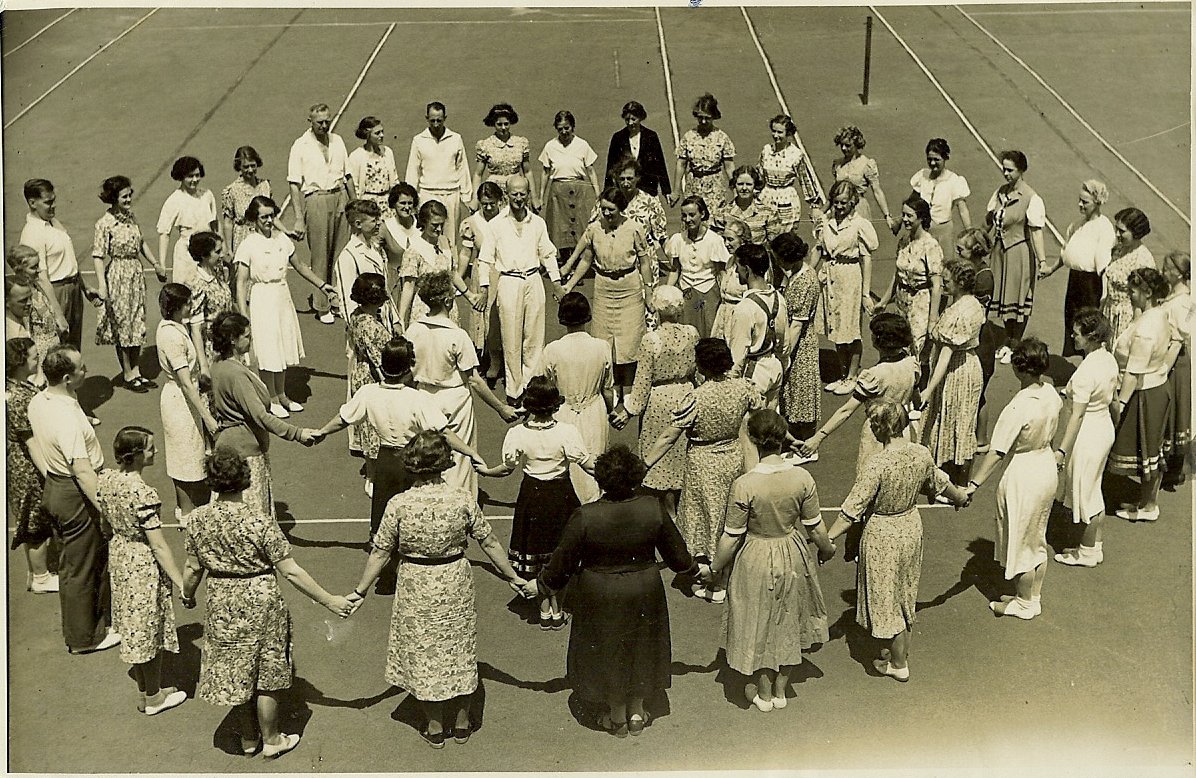
English Folk Dance and Song Summer School at Wellington - 1940
(Notes on back: "This was a summer school by Wellington EFDS. Women are in the white
blouses & flared skirts with coloured ribbon stripes.
I think Hilda Taylor is at extreme right, with ribbon in hair. I'm (Barbara Woods) in the
inside circle, facing camera.
I can see John Oliver but can't put names to other familiar faces" - Barbara Woods -
1976)

Miss Hilda Taylor
trained and certificated by Cecil Sharp, then emigrated to New Zealand
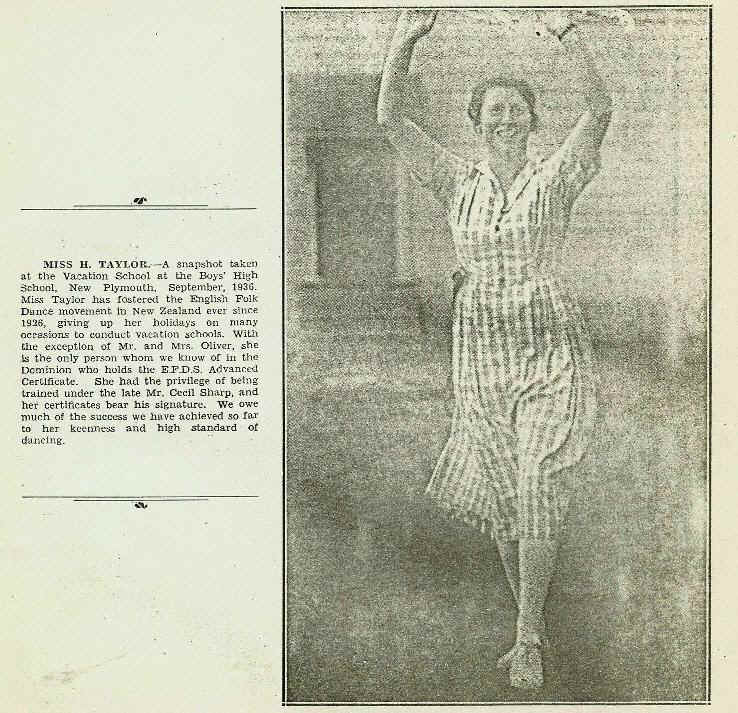
Miss. Hilda Taylor
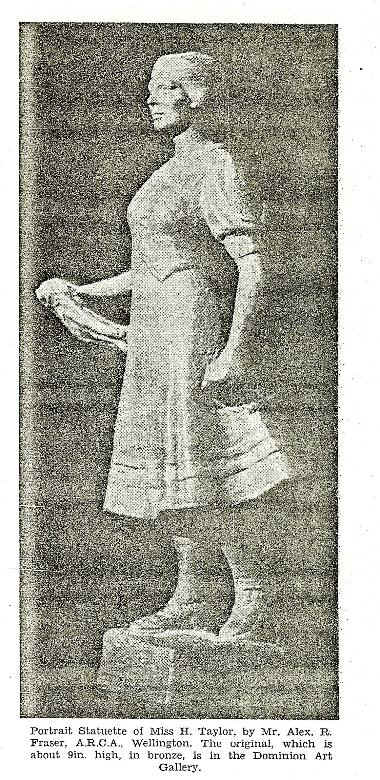
Miss Hilda Taylor trained under Cecil Sharp in the 1920s and then emigrated to New
Zealand.
There she taught English country dancing and morris dancing in schools around NZ.
Attempts to locate the statuette have resulted in nothing.
The Dominion Art Gallery does not now exist (2013).
Papers
Past - Miss Hilda Taylor 
Folk
Dancing - Y.W.C.A. Concert 
Northern Advocate , 4 June 1925, Page 5
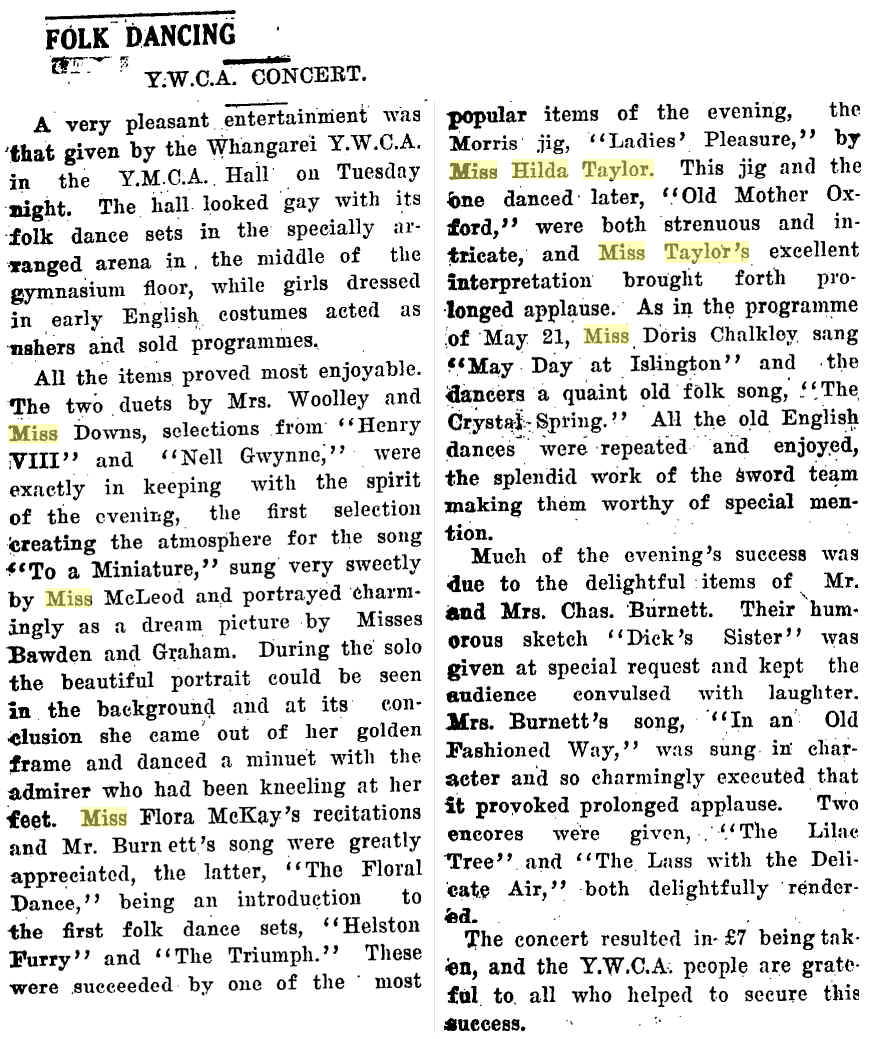
Y.W.C.A.
Concert & Folk Dancing 
Northern Advocate , 1 June 1925, Page 8
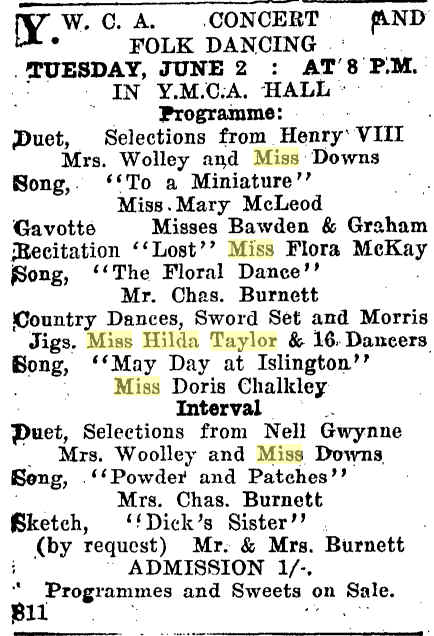 |
PIONEER
CLUB 
Evening Post, Volume CXXII, Issue 102, 27 October 1936, Page 17
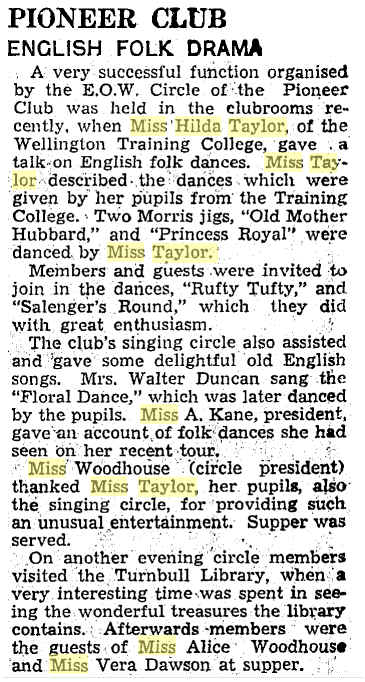 |
Women
in Print 
Evening Post, Volume CXIII, Issue 19, 24 January 1927, Page 13
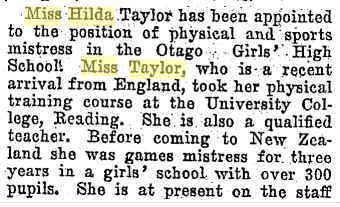
of Queen Margaret College. |
|
Folk
Dance and Song 
Evening Post, Volume CXXVI, Issue 79, 30 September 1938, Page 5
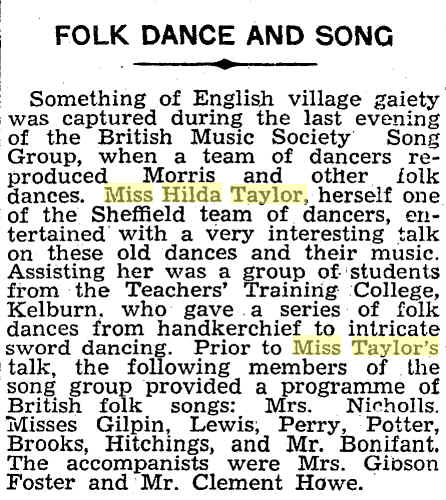 |
Hutt
Valley News 
Evening Post, Volume CXXVII, Issue 148, 26 June 1939, Page 14
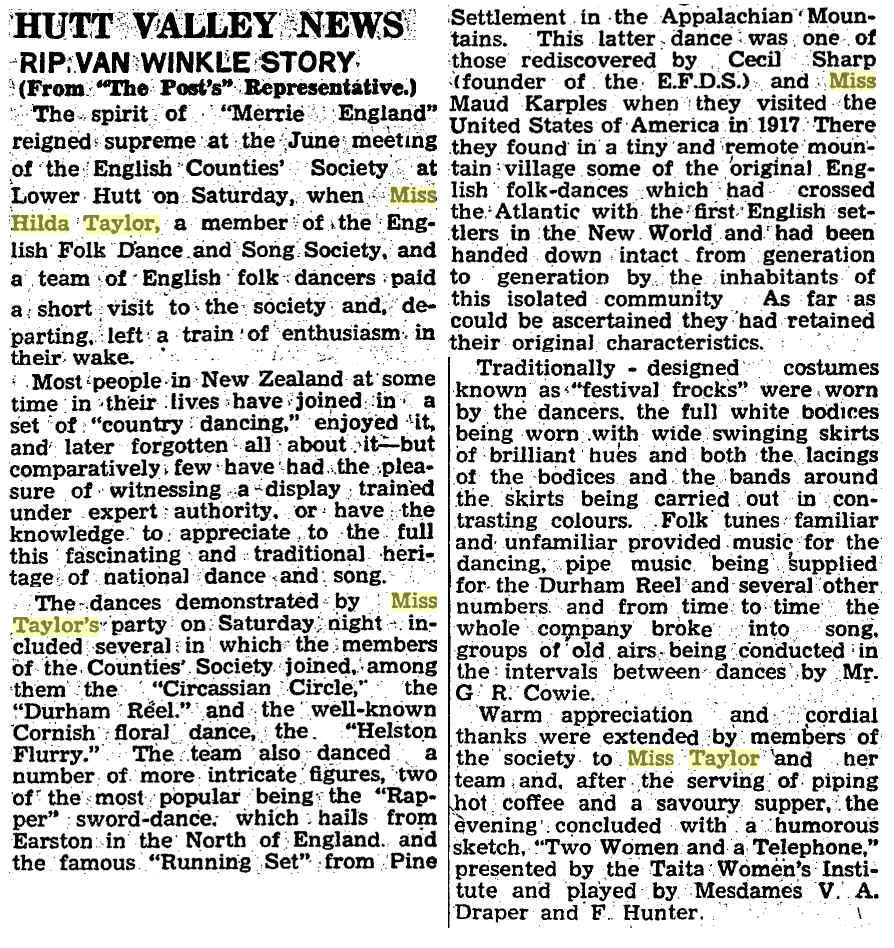

Christchurch Country Dance Club - 1980
There's a film of the ladies dancing in 1987 on YouTube  |
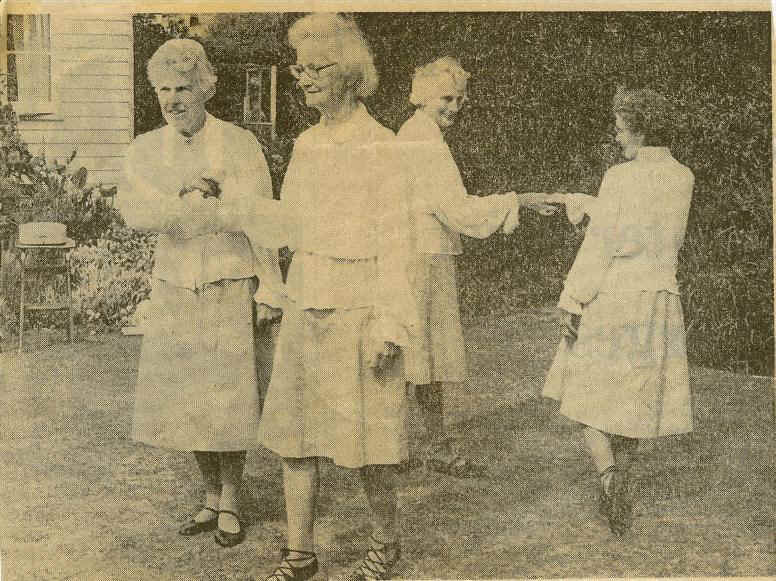
Nancy Page, Kennah Moor, Betty Moon, ????
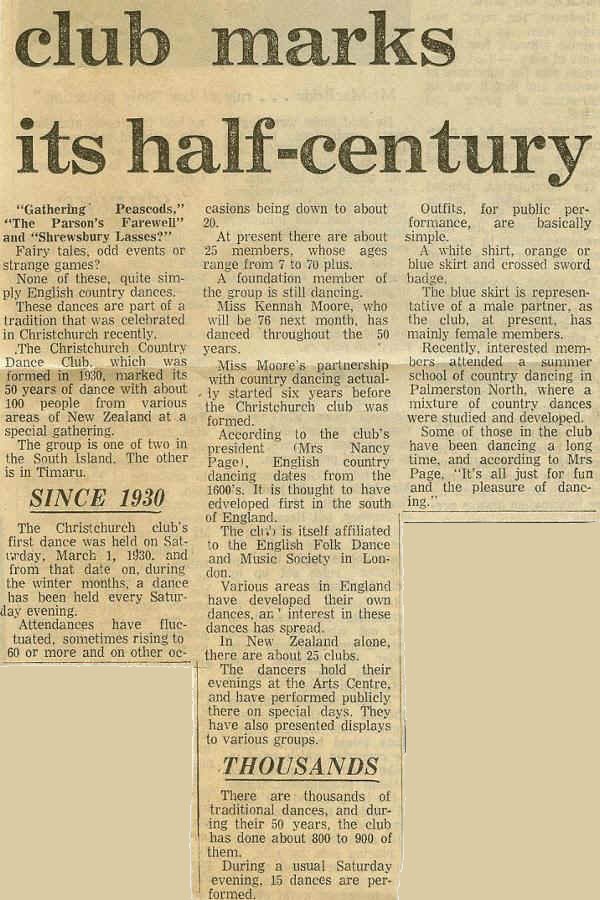

Further Research
Further research on local folk dance activities could easily be done
simply by browsing through old copies of the newspapers. These are now all scanned and
available online at Papers
Past up to about the mid-1940s. Using keywords for searches such as
"hornpipe" "clog dance" "morris dance" "sword
dance" "efdss" etc. all produce interesting results. Also searches could be
made of old copies of N.Z. Graphic and other local magazines at various libraries.
Reports of formal balls at Government House and elsewhere would elicit
the social dances enjoyed at that time, although most reports concentrate upon the ladies'
ball gowns!
Fancy Dress Costumed Balls of
many and various themes were in vogue in Australia and New Zealand throughout the late
1800s and early 1900s, as indeed they were throughout the U.K. and Ireland (a rarely researched area of formal social
dance). So too were 'coming out' balls for the young women.
Interestingly but not surprisingly during the period 1900-1960 both in
Australia and New Zealand nearly everyone wanted to emulate the fashions of contemporary
British society. The word 'home' at that time very much meant the 'home country,' that is
the British Isles.
![]()
![]()

![]()
![]()
![]()